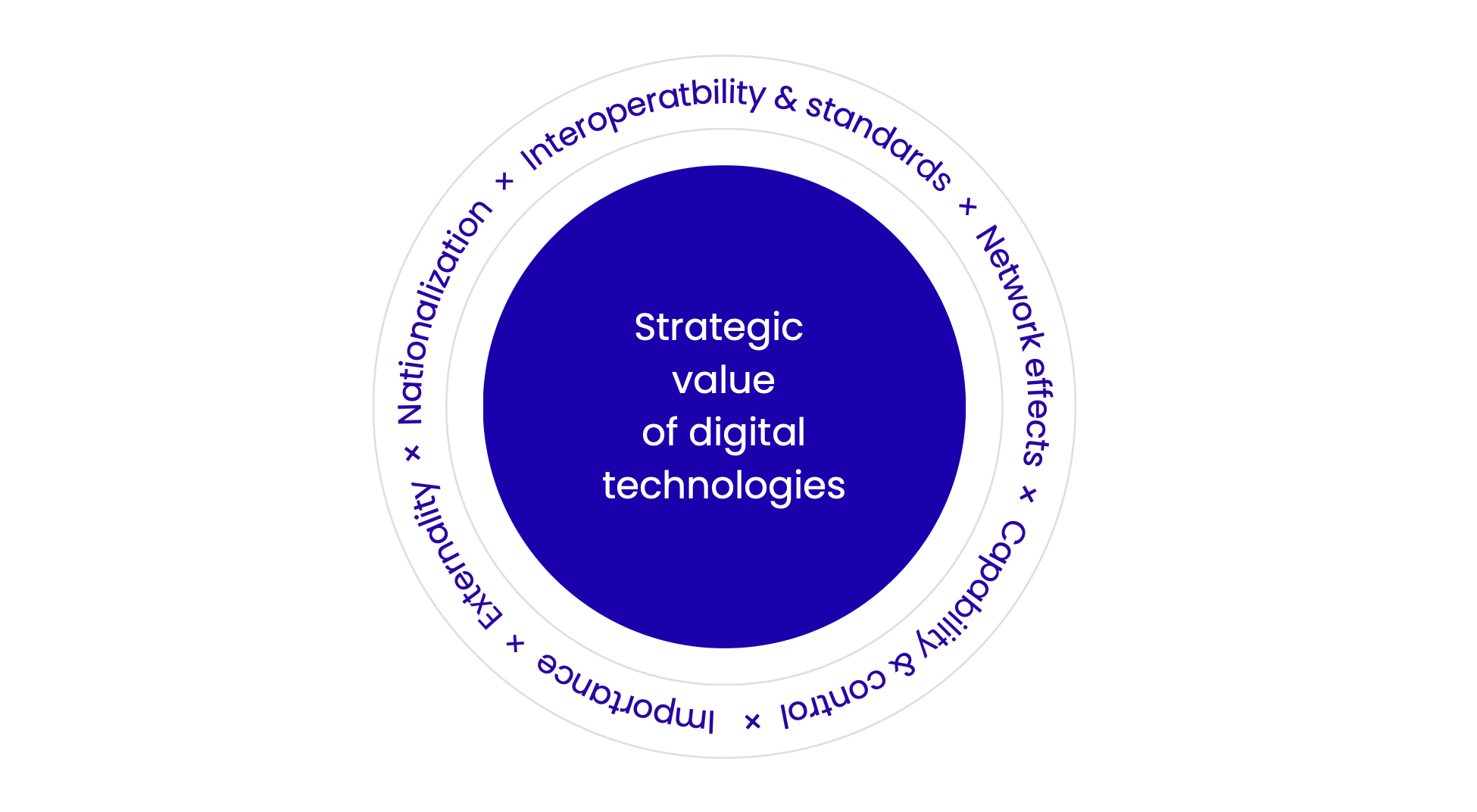
Research Report: The strategic and symbolic value of digital technologies
In a new report released today, ECCRI explores how states attach strategic value to digital technologies. Combining conceptual insights and practical applications, the report introduces and assesses a comprehensive framework designed to identify the strategic properties of critical and emerging technologies.
Its findings offer guidance for navigating the opportunities and challenges brought about by digital technological transformation and for strengthening effective multilateral cooperation in this rapidly evolving field.
Drawing on research conducted by ECCRI for the EU Horizon Europe project Reigniting Multilateralism Through Technology (REMIT), the report covers three areas:
- A framework for understanding strategic digital technologies: Building on existing conceptions of strategic assets, the report develops a framework specifically designed to capture the strategic properties of digital technologies. While acknowledging the context-dependent and evolving nature of strategic value, the framework highlights distinct dynamics around interoperability and standardization, network effects, and capability and control.
- An assessment of the strategic value of key digital technologies: The report then leverages the framework above to assess strategic value for six digital technologies. These foundational technologies are artificial intelligence (AI), cybersecurity, quantum technologies, 5G, Internet of things (IoT), and cloud computing.
- A comparative analysis of multilateral and national approaches: To unpack the economic and societal factors that shape how states view the strategic value of digital technologies, the report compares individual state approaches to digital technologies, both at the level of national strategies and as part of multilateral consultations, specifically as part of the consultations for the UN Global Digital Compact (GDC).
ECCRI Senior Researcher Jakob Bund explained: “A steadily growing number of initiatives aims to pave the way for digital technologies while preventing abuses, threats and harm. Such initiatives range from regional dialogues on the safe development of AI systems and semiconductor supply chain security all the way to global efforts to enhance economic equality and protect human rights. The proliferation of these processes and platforms raises a central question: When do states decide to invest in these different forums, and what are their goals? The report’s framework offers a new approach to systematically study how states view the technologies that will continue to define strategic competition in the coming years.”
